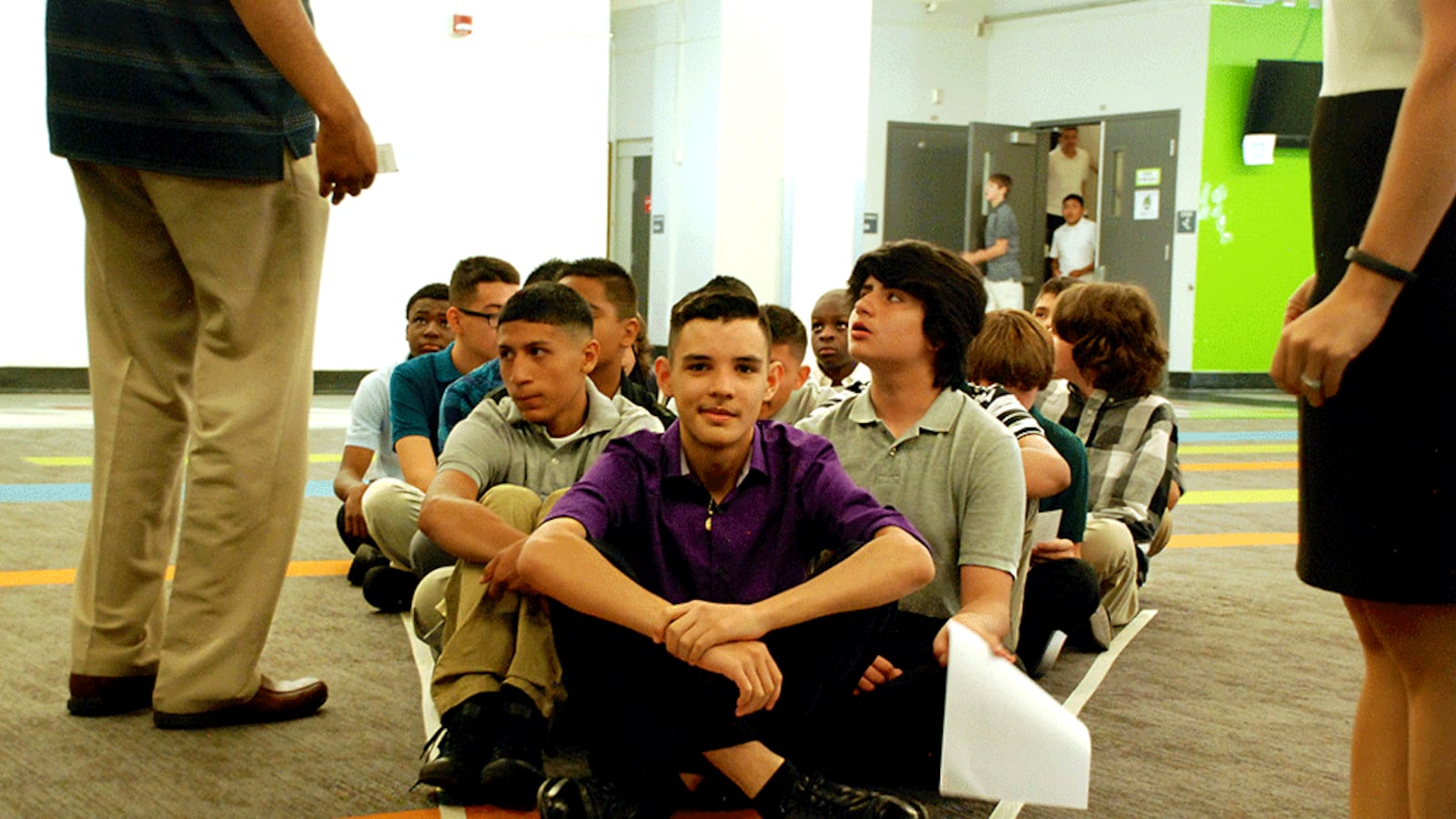For the second year in a row, Denver’s largest charter school network, DSST, is a finalist for a prestigious national prize worth $250,000.
DSST, which operated 13 Denver middle schools and high schools this past school year, is one of three top contenders for the Broad Prize for Public Charter Schools. A growing charter network, DSST was selected in part for its success in preparing students from low-income families and students of color for college.
The National Alliance for Public Charter Schools and the Eli and Edythe Broad Foundation award the prize annually to a large U.S. charter school network they deem the most academically successful. The award money must be used for college-readiness efforts.
Finalists were chosen based on factors such as test scores and progress toward closing achievement gaps, the organizations said.
In naming DSST a finalist, they explained: “DSST’s schools achieved the highest SAT results in the state for black, white, and low-income students. For the past 10 consecutive years, 100 percent of DSST graduates have been accepted to four-year colleges or universities.”
To qualify for this year’s prize, charter networks must have had five or more schools in operation during the past three academic years, and must serve at least 2,500 students. Of those students, 33 percent must be students of color and 40 percent must qualify for subsidized lunches, an indicator of poverty. Across the country, 41 charter networks qualified.
DSST, which was founded in 2004, exceeds the criteria.
This past school year, DSST served some 5,300 students. More than 80 percent of them are students of color, and two-thirds qualify for free or reduced-price lunch. The network gives enrollment preference at some of its schools to students from low-income families.
The CEO of the DSST network, Bill Kurtz, said being named a finalist for the second consecutive year reflects a lot of hard work on the part of students, faculty, and staff.
“DSST students are able to achieve outstanding results thanks to our collective efforts, and we look forward to improving even more as we work toward ending educational inequity in Denver and beyond,” he said in a statement.
The network plans to open another middle school in Denver this fall, and the school district has approved eight more DSST schools that don’t yet have opening dates. DSST also plans to open next year its first schools outside of Denver, in neighboring Aurora Public Schools.
DSST is the smallest of the finalist charter networks. Achievement First runs 34 schools, serving 12,600 students in New York, Connecticut, and Rhode Island. Uncommon Schools has 52 schools, serving 18,000 students in New York, New Jersey, and Massachusetts.
All three have been finalists in the past, and Uncommon Schools won the prize in 2013. The New York City charter network Success Academy won last year.
This year’s winner will be announced June 18 at the National Charter Schools Conference in Austin, Texas.


